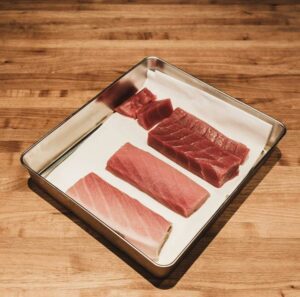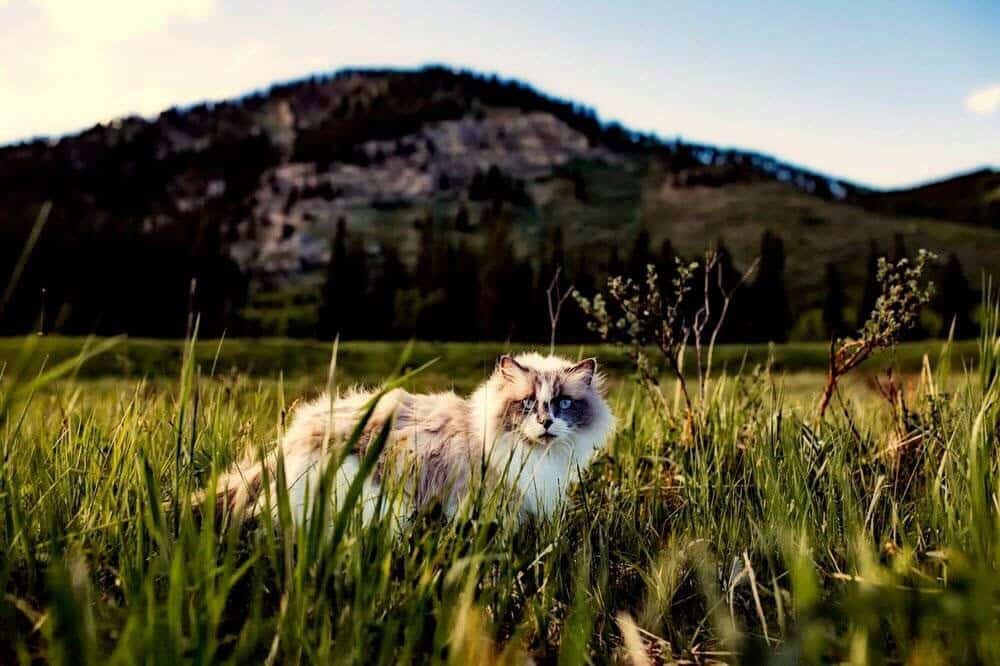Three Reasons to Switch to a Raw Cat Food Diet
Raw cat food has emerged as a popular choice among pet owners seeking to mimic the natural diet of wild felines. This diet primarily consists of muscle meat, bones, organ meats, and even small amounts of fruits and vegetables, closely resembling what cats historically consumed in the wild for centuries before domestication. With the shift toward raw pet food comes the promise of numerous health benefits compared to processed, off-the-shelf cat foods.
Raw Cat Foods Offer Enhanced Nutrient Absorption
The hallmark of raw cat food diet is its ability to deliver nutrients in their most natural and potent form, which is a significant advantage over more heavily processed cat foods. Raw cat food is minimally processed, which preserves the natural nutrients in the ingredients. Unlike processed cat foods, which often lose nutritional value during cooking and manufacturing, raw food maintains high levels of essential vitamins and minerals.
Vitamin Absorption
Vitamins B and C are highly susceptible to heat degradation. In raw cat food diets, these vitamins are preserved, supporting vital functions including immune response and red blood cell production. Vitamin B6, crucial for protein metabolism and red blood cell formation, can lose its potency when exposed to the cooking processes used in manufacturing commercial, highly-processed pet foods.
Enhanced Bioavailability
Raw diets also enhance the bioavailability of nutrients, meaning nutrients are more readily absorbed and used by the cat’s body. This is particularly important for minerals such as calcium and phosphorus, which are found in natural proportions in raw meat and bones and are crucial for maintaining strong bones and healthy cell functions.
Taurine Retention
Taurine is a standout nutrient that is better retained in raw diets. It is a critical amino acid for cats, supporting multiple body systems including vision, digestion, and heart muscle function. Adequate taurine levels in cats help prevent dilated cardiomyopathy, a significant heart disease, and support overall cardiovascular health.
Raw Cat Food Diets Help Improve Digestive Health
Cats are carnivores, which means their bodies are finely tuned to digest meat rather than carbohydrates. A raw cat food diet, with its high protein content and low carbohydrate levels, aligns perfectly with cats as they have a short digestive tract designed for processing high-protein, low-carbohydrate diets. A raw diet can lead to fewer digestive problems such as bloating or constipation, as well as improved stool consistency and volume, which indicates better digestive efficiency.
Natural Composition for Optimal Digestion
The composition of raw cat food is inherently suited to the physiological makeup of cats. Their digestive systems are short and highly acidic, designed to efficiently process meats and absorb high levels of protein. High levels of protein support not only muscle maintenance and growth but also various bodily functions including hormone production.
Enhanced Gut Flora Health
A raw diet can also contribute to a healthier gut microbiome. Natural, unprocessed meats help maintain a balanced level of gut flora. Natural enzymes and beneficial bacteria in raw meat help to sustain a healthy balance of gut flora in cats, which can be disrupted by processed foods with artificial ingredients and preservatives.
Raw Cat Food Diets Help Weight Management & Lean Muscle
Raw cat food diets are effective in managing weight and maintaining lean muscle mass due to their natural composition and nutritional profile. Weight management is a critical aspect of cat health, influencing
Impact on Metabolic Health
A raw food diet can help regulate a cat’s metabolism, aiding in weight control and preventing obesity-related diseases such as diabetes and joint issues. The high protein and low carbohydrate profile helps maintain a stable blood glucose level, which is crucial in preventing obesity and diabetes, common health issues in domestic cats.
Caloric Efficiency & Low Carbohydrate Content
Processed pet foods can contain high carbohydrate levels. High carbohydrate diets are linked to increased fat deposition and decreased insulin sensitivity in cats. Raw diets are naturally low in calories and carbohydrates, whereas processed foods often contain high levels of fillers and carbohydrates that contribute to weight gain.
High-Quality Protein for Muscle Maintenance
Raw cat food diets typically provide protein in a more digestible form, with higher bioavailability than processed, off-the-shelf cat foods. The proteins found in raw diets, such as those from chicken, rabbit, or fish, contain all the essential amino acids necessary for the maintenance of lean muscle mass and overall health. These types of high-quality proteins not only support muscle maintenance but also promote muscle repair and growth. This is crucial for aging cats or those with higher physical activity levels.
Feeding cats a raw diet offers several benefits that align closely with their natural dietary needs. From enhanced nutrient absorption to better weight management and improved hydration, raw cat food supports overall health more effectively than many commercially processed cat food options. At Fresh is Best®, we make the highest quality raw cat foods and go the extra step of freeze-drying our food in small batches to lock in all the dietary and nutritional benefits your cat needs to thrive. By choosing a Fresh Is Best® cat food, cat owners can ensure their furry friends lead healthier, happier lives.


NOTE: The statements made on this website have not been evaluated by the Food and Drug Administration. These statements and the products of this company are not intended to diagnose, treat, cure, or prevent any disease.
Please consult your veterinarian before implementing any new diet, exercise, and dietary supplement programs, especially if your pet has preexisting medical conditions or is taking prescribed medications. The statements made on this website are for educational purposes only and are not meant to replace the advice of your veterinarian.
Proper treatment of health conditions depends upon several factors, including, but not limited to, your pet’s medical history, diet, lifestyle, and medication regimen. Your veterinarian can best assess and address your pet’s individual health care needs. You should consult with your veterinarian before starting a new diet, supplement, or treatment regimen. Individual results may vary.